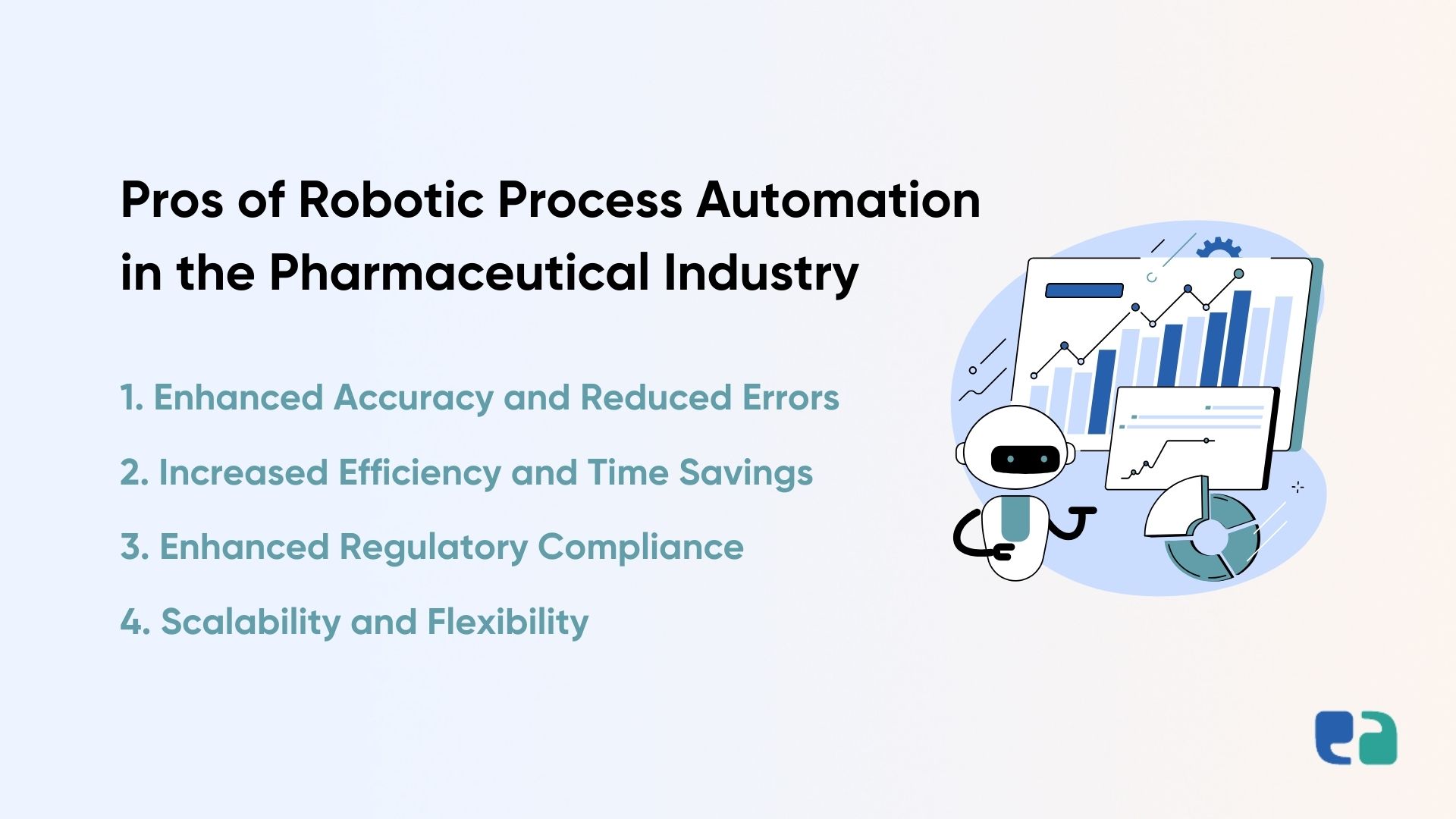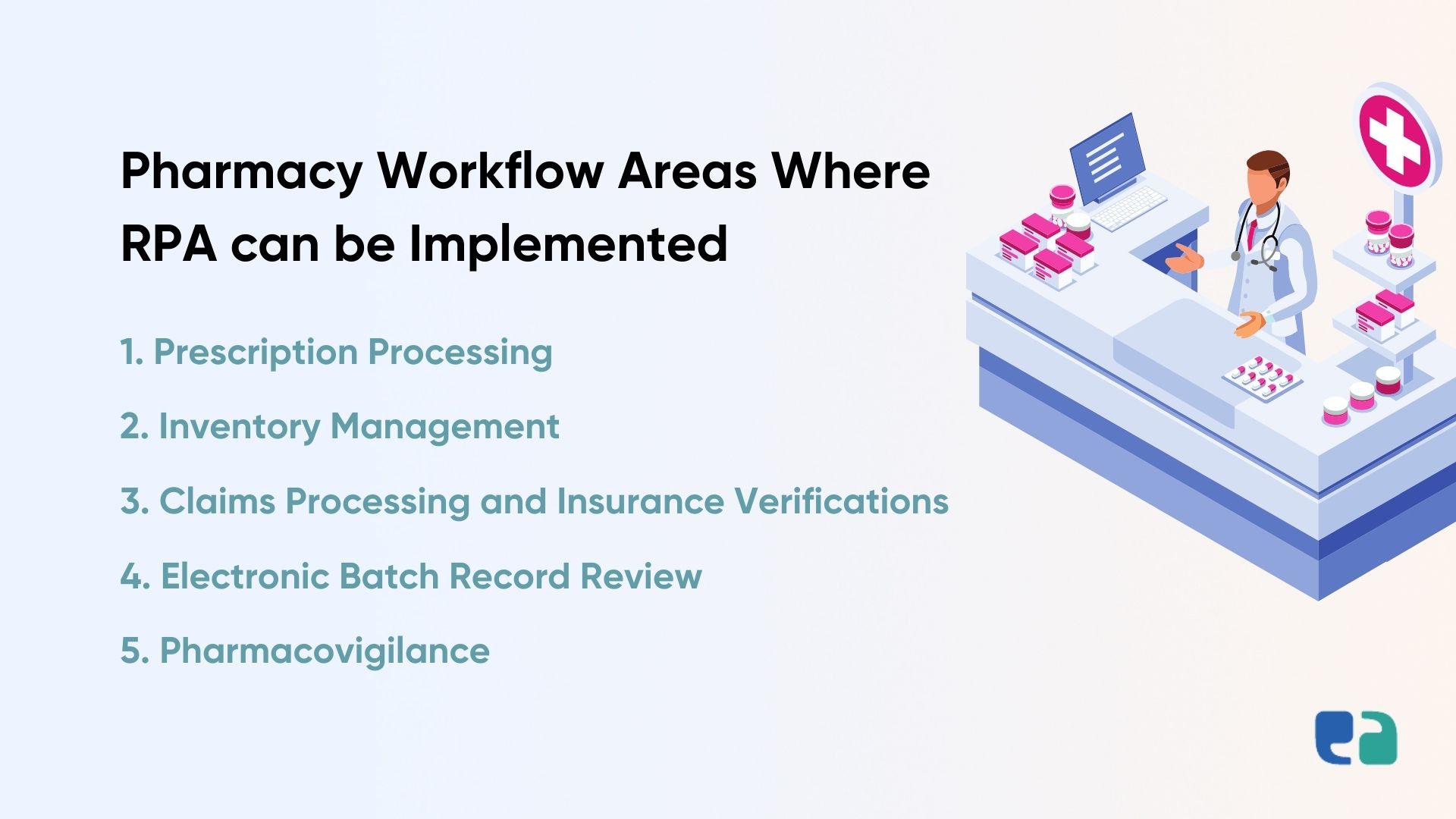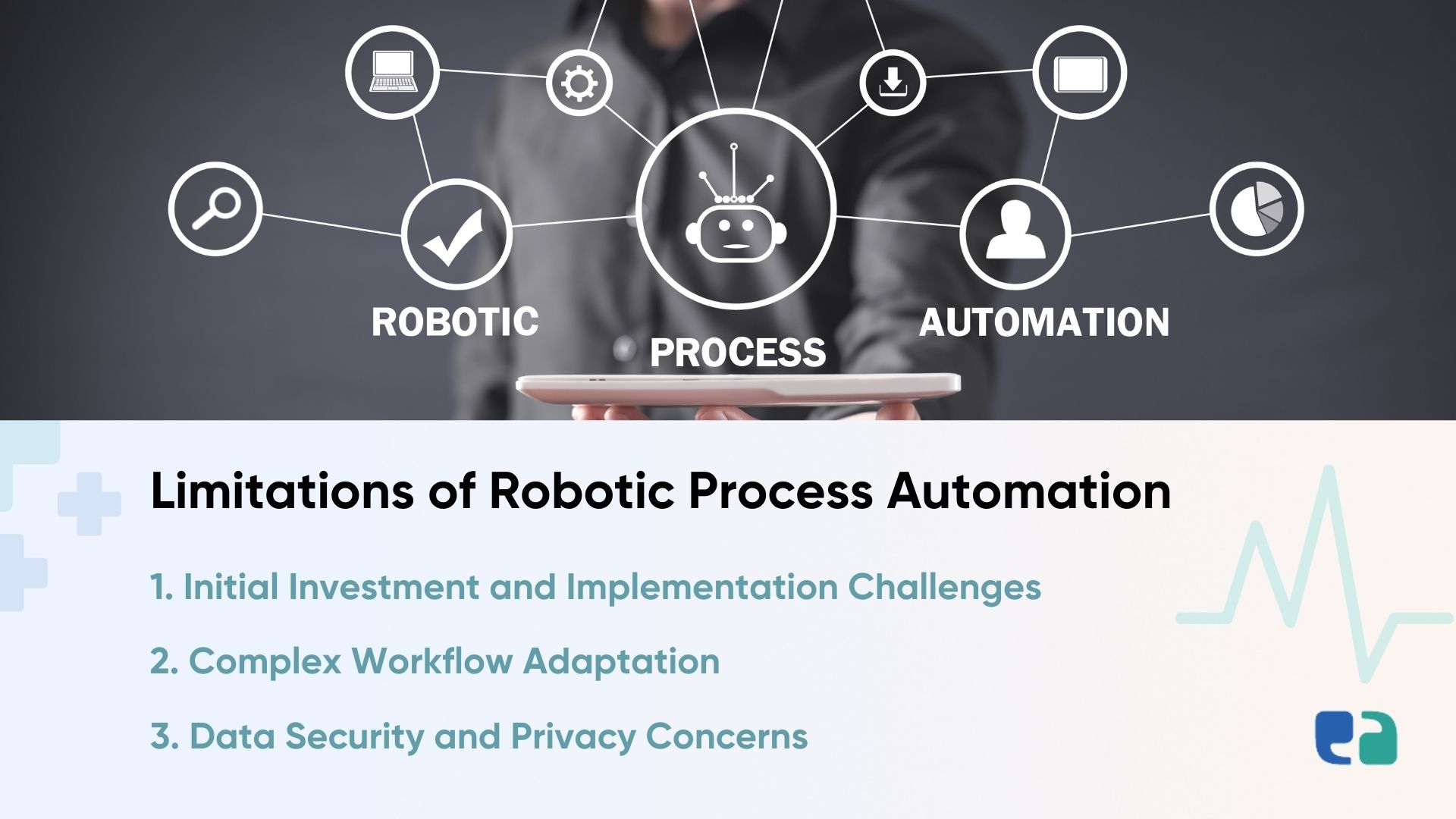RPA In Pharmaceutical Industry: Everything You Need To Know

8 months ago
In the world of pharmaceuticals, efficiency, and accuracy play a pivotal role in ensuring patient safety and optimal healthcare delivery.
To meet these demands, the industry has embraced technological advancements, one of which is Robotic Process Automation (RPA).
By automating routine and repetitive tasks, RPA has the potential to streamline pharmacy workflows and empower pharmacists to focus on critical patient care.
Let us explore the pros and limitations of utilizing RPA in the pharmaceutical industry.
Pros of Robotic Process Automation in the Pharmaceutical Industry

1. Enhanced Accuracy and Reduced Errors
Human error is an inherent risk in manual processes, particularly in high-volume tasks such as data entry and inventory management.
RPA eliminates these risks by performing tasks with unparalleled precision, minimizing the likelihood of errors, and improving overall data accuracy.
By ensuring accurate data entry, RPA contributes to safer medication dispensing and reduces the potential for adverse drug events.
2. Increased Efficiency and Time Savings
Pharmacy workflows involve numerous repetitive and time-consuming tasks, such as
- Prescription processing
- Insurance verifications
- Medication reconciliation
RPA can automate these tasks, enabling pharmacists to focus on critical patient care activities.
By efficiently handling routine processes, RPA significantly reduces processing time, allowing pharmacies to operate more efficiently and serve patients promptly.
3. Enhanced Regulatory Compliance
The pharmaceutical industry is heavily regulated, with strict compliance requirements imposed by regulatory authorities.
RPA can help streamline compliance processes by automating
- Documentation
- Data validation
- Reporting
This ensures adherence to regulatory standards, reduces the risk of non-compliance, and facilitates smoother audits.
4. Scalability and Flexibility
RPA offers scalability and flexibility to adapt to changing business needs and varying workloads.
As pharmacy operations expand or contract, RPA systems can be easily adjusted.
It allows organizations to maintain efficiency and productivity while avoiding unnecessary costs associated with hiring and training additional staff.
Pharmacy Workflow Areas Where RPA can be Implemented

1. Prescription Processing
RPA can automate prescription intake, verification, and processing, eliminating the need for manual data entry and reducing the risk of transcription errors.
This automation enables pharmacists to focus on patient consultations and clinical interventions, improving overall medication safety and patient outcomes.
2. Inventory Management
Efficient inventory management is crucial for pharmacies to ensure adequate stock levels and minimize waste or shortages.
RPA can automate inventory tracking, alerting pharmacists when stock levels reach predetermined thresholds and streamlining the ordering and replenishment process.
By optimizing inventory management, RPA helps
- Minimize medication shortages
- Prevent the expiration of drugs
- Improve cost-effectiveness
3. Claims Processing and Insurance Verifications
RPA can automate claims processing, insurance verifications, and prior authorization requests, reducing the administrative burden on pharmacists.
By automating these tasks, RPA accelerates the reimbursement process and enhances financial efficiency for both pharmacies and patients.
4. Electronic Batch Record Review
Bots can perform the record reviewing activities as they can identify the availability of the required documentation.
Bots can also check the coherency of the collected information in the process and segregate it with operational parameters.
Reviews performed by the bots with RPA don’t need to be rechecked.
Hence, they can be logged and closed by the bot.
But if the bot detects any discrepancy then, human evaluation will be required.
The RPA solution can report the issues to one or more users before continuing the process.
5. Pharmacovigilance
Pharmacovigilance is one of the main areas that can be benefitted from RPA.
Companies are managing case reports manually as the data varies in quality, format, and structure.
Robotic process automation can solve this problem.
It enables the companies to process increased case reports along with maintaining the costs.
Limitations of Robotic Process Automation

1. Initial Investment and Implementation Challenges
Implementing RPA requires an upfront investment in technology infrastructure and software.
It requires training for staff members who will interact with the automated systems.
Moreover, integrating RPA into existing pharmacy systems may present challenges, necessitating careful planning and collaboration with IT departments.
2. Complex Workflow Adaptation
Some pharmacy processes may involve intricate decision-making or require human judgment, making them less suitable for full automation with RPA.
Pharmacists must carefully evaluate which tasks can be automated without compromising patient care or professional expertise.
3. Data Security and Privacy Concerns
Automation brings forth concerns regarding data security and patient privacy.
Robust measures must be implemented to ensure the confidentiality and integrity of sensitive patient information.
Pharmacies should adopt comprehensive security protocols and adhere to relevant data protection regulations.
Mitigate These Challenges With Our All-in-one Pharmacy Solution
We’re a healthcare-dedicated software development company.
We’ve developed software that can perform the tasks of multiple solutions.
With our experience of almost a decade, we can guarantee that you won’t have to stress about regulatory compliance as we’ll do that for you.
Our all-in-one pharmacy software can assist you in
- Team management
- Task management
- Contract management
- Vendor management
- Partner management
- Automation of repetitive tasks (like ordering, refills, renewals, etc.)
- Access management
- Revenue management
- Inventory management
Let us enlist some of the features of our all-in-one pharmacy software solution.
- Streamlined reminders for refill orders
- Effortless refills at your fingertips
- Prescription renewal notifications
- Seamless integration with PBMS and partner software system
- Efficient order placement in partner software system
- Automated updates on tracking information
- Restricted medication visibility for enhanced security
- Timely email and notification alerts from your pharmacy
- Tailored order sets to meet specific requirements
- Detailed reports showcasing cost savings
- Add unlimited partner pharmacies in the software solution
- Customizable and flexible discount rates for each partner pharmacy
And the most exciting thing is,
We can customize the software according to your pharmacy's unique requirements.
Fill up the contact form to know more about our solution and our team will connect with you in 2 business days.
